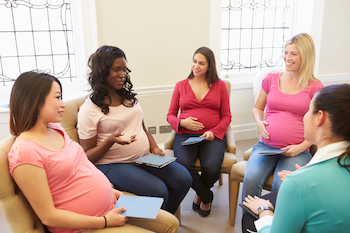Maternal health is a crucial aspect of overall well-being for women and their families. In South Africa, like many other countries, ensuring access to quality healthcare and empowering women with knowledge about their health is essential for improving maternal outcomes. Maternal health education plays a pivotal role in empowering women, enabling them to make informed decisions about their health and the health of their babies. By providing comprehensive and accessible education, South Africa can enhance maternal health and contribute to the well-being of communities across the nation.
Maternal health education encompasses a wide range of topics, including prenatal care, nutrition, childbirth, breastfeeding, postpartum care, and family planning. It equips women with the knowledge and skills necessary to navigate the different stages of pregnancy and motherhood, making informed choices that promote their own well-being and that of their children.
One of the key components of maternal health education is prenatal care. Early and regular prenatal visits are crucial for monitoring the health of both the mother and the developing baby. Maternal health education programs emphasize the importance of seeking prenatal care, educating women about the benefits of regular check-ups, screenings, and tests to identify and manage any potential complications.
Nutrition plays a vital role in supporting a healthy pregnancy and ensuring optimal fetal development. Maternal health education programs provide information about the importance of a balanced diet, essential nutrients, and healthy weight gain during pregnancy. They also address common misconceptions and cultural practices that may hinder proper nutrition. By empowering women with knowledge about healthy eating habits and the impact of nutrition on maternal and fetal health, these programs promote positive health behaviors and prevent complications related to malnutrition.
Childbirth education is another crucial component of maternal health education. These programs focus on preparing women for the labor and delivery process, including information on different birthing options, pain management techniques, and the role of healthcare providers during childbirth. By empowering women with knowledge about their rights and choices during labor, they can actively participate in their own birthing experiences and make informed decisions about their preferred delivery methods.
Breastfeeding is widely recognized as the optimal source of nutrition for infants. Maternal health education programs provide information about the benefits of breastfeeding, proper techniques, and strategies to overcome common challenges. By promoting breastfeeding as the norm and addressing misconceptions and barriers, these programs contribute to increased breastfeeding rates and improved health outcomes for both mothers and babies.
Postpartum care is often overlooked but is crucial for the well-being of mothers after childbirth. Maternal health education programs provide information on physical and emotional changes during the postpartum period, self-care practices, and signs of postpartum complications. By educating women about the importance of seeking postpartum care and addressing any concerns or issues, these programs facilitate a smoother transition into motherhood and help prevent complications.
Family planning education is an essential component of maternal health education. It empowers women to make informed decisions about their reproductive health and plan pregnancies according to their individual circumstances. By providing information about contraceptive methods, their effectiveness, and their availability, maternal health education programs enable women to take control of their reproductive choices and promote spacing and planning of pregnancies.
To ensure the effectiveness of maternal health education programs, it is crucial to adopt a multi-faceted approach. This includes collaboration between healthcare providers, government agencies, non-governmental organizations, community leaders, and educators. By working together, these stakeholders can develop comprehensive educational materials, implement culturally sensitive strategies, and reach women in various settings, including healthcare facilities, schools, community centers, and through digital platforms.
Furthermore, it is essential to prioritize the inclusion of marginalized and vulnerable populations, including women in rural areas, adolescents, and women from low-income backgrounds. Tailoring maternal health education programs to address the specific needs and challenges faced by these groups will help bridge existing gaps in access to information and healthcare services.
In conclusion, maternal health education plays a vital role in empowering women in South Africa with knowledge about their health and the health of their babies. By providing comprehensive and accessible education on prenatal care, nutrition, childbirth, breastfeeding, postpartum care, and family planning, South Africa can enhance maternal health outcomes and contribute to the overall well-being of communities. Investing in maternal health education is an investment in the future, as empowered women are better equipped to make informed decisions, promote their own health, and nurture the well-being of their families.










